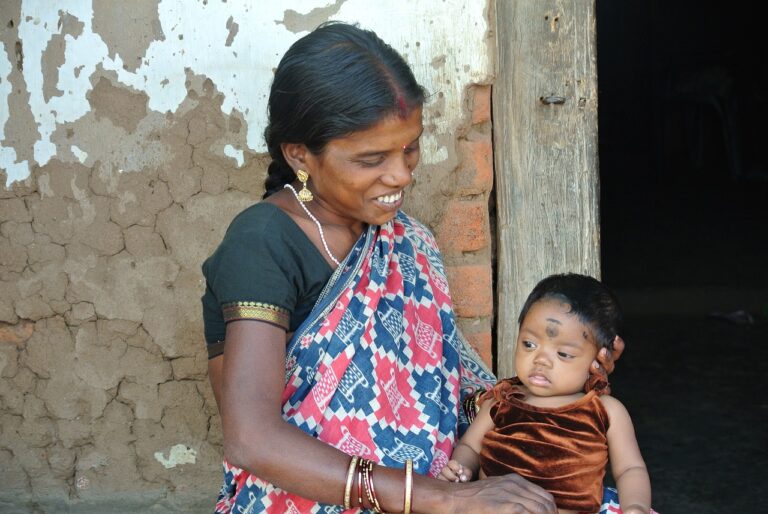The Influence of Political Polling on Fundraising Strategies
silver exchange, goldenexch login, betbook247.com login:Political polling plays a significant role in shaping fundraising strategies for political campaigns. Understanding public opinion and knowing where candidates stand in the minds of voters is crucial for crafting effective fundraising approaches. In this article, we will explore the influence of political polling on fundraising strategies and how candidates can leverage this information to maximize their campaign contributions.
Why Political Polling Matters
Political polling provides valuable insights into the preferences and sentiments of the electorate. By conducting polls, campaigns can gauge public opinion on various issues, assess their candidate’s support base, and identify areas for improvement. This data is crucial for developing targeted fundraising strategies that resonate with donors and potential supporters.
How Political Polling Influences Fundraising Strategies
1. Identifying Key Issues: Political polls help campaigns identify key issues that resonate with voters. By understanding what matters most to the electorate, candidates can tailor their fundraising messages to highlight these issues and appeal to potential donors who share similar concerns.
2. Targeting Donors: Political polling allows campaigns to identify potential donors who are aligned with their candidate’s platform. By analyzing poll data, campaigns can target fundraising efforts towards individuals who are more likely to support their cause, increasing the effectiveness of their fundraising campaigns.
3. Assessing Support Levels: Political polls provide campaigns with valuable information on their candidate’s support levels. By monitoring polling data, campaigns can track changes in public opinion and adjust their fundraising strategies accordingly. For example, if a candidate’s support is dwindling, campaigns may need to ramp up their fundraising efforts to galvanize support.
4. Shaping Messaging: Political polling helps campaigns understand how their candidate is perceived by the public. By analyzing poll data, campaigns can identify messaging strategies that resonate with voters and drive fundraising success. For instance, if a candidate is viewed favorably for their stance on a particular issue, campaigns can emphasize this in their fundraising appeals.
5. Benchmarking Progress: Political polling serves as a benchmark for measuring a campaign’s progress. By comparing current poll numbers to previous data, campaigns can assess the effectiveness of their fundraising strategies and make adjustments as needed. This allows campaigns to stay agile and responsive to changing public sentiment.
6. Mobilizing Supporters: Political polling can help campaigns mobilize their supporters and energize their fundraising base. By showcasing positive poll numbers and highlighting momentum in the polls, campaigns can create a sense of urgency among donors and supporters, encouraging them to contribute to the cause.
Fundraising Strategies in Action
Let’s take a closer look at how political polling influences fundraising strategies in real-world scenarios:
1. Targeted Outreach: Based on poll data, a campaign may identify a demographic group that is particularly supportive of their candidate. To capitalize on this support, campaigns can launch targeted fundraising efforts aimed at engaging this specific group of donors.
2. Issue-Based Fundraising: If a political poll reveals that a certain issue is top of mind for voters, campaigns can leverage this information to craft fundraising messages that emphasize the candidate’s stance on that issue. By aligning fundraising appeals with voter priorities, campaigns can attract more contributions.
3. Fundraising Events: Political polls can inform the timing and format of fundraising events. For example, if a candidate’s poll numbers are surging, campaigns may organize a high-profile fundraising event to capitalize on their momentum and generate excitement among donors.
4. Online Fundraising: By monitoring social media sentiment and online polls, campaigns can gauge public opinion in real-time and adjust their online fundraising strategies accordingly. For example, campaigns may launch targeted social media ads based on poll data to drive online donations.
5. Donor Communications: Political polls can shape the content and tone of donor communications. For instance, if a candidate’s poll numbers are slipping, campaigns may send out urgent fundraising appeals to motivate donors to contribute and help turn the tide.
FAQs
Q: How often should campaigns conduct political polls to inform their fundraising strategies?
A: Campaigns should conduct political polls regularly to stay informed about changes in public opinion and adjust their fundraising strategies accordingly. Typically, polls are conducted monthly or quarterly, depending on the campaign’s timeline and budget.
Q: Can political polling data be used to predict fundraising success?
A: While political polling data provides valuable insights into voter sentiment, it is not a foolproof predictor of fundraising success. Other factors, such as campaign outreach efforts, donor engagement, and external events, also play a significant role in fundraising outcomes.
Q: How can campaigns leverage political polling data to engage small donors?
A: Campaigns can use political polling data to identify issues that resonate with small donors and craft targeted fundraising messages that appeal to this segment. By showcasing their candidate’s alignment with voter priorities, campaigns can cultivate relationships with small donors and encourage them to contribute to the cause.
In conclusion, political polling plays a crucial role in shaping fundraising strategies for political campaigns. By leveraging poll data to identify key issues, target donors, assess support levels, and shape messaging, campaigns can maximize their fundraising success and mobilize supporters effectively. By incorporating political polling insights into their fundraising approaches, campaigns can build momentum, engage donors, and ultimately secure the resources needed to win elections.







